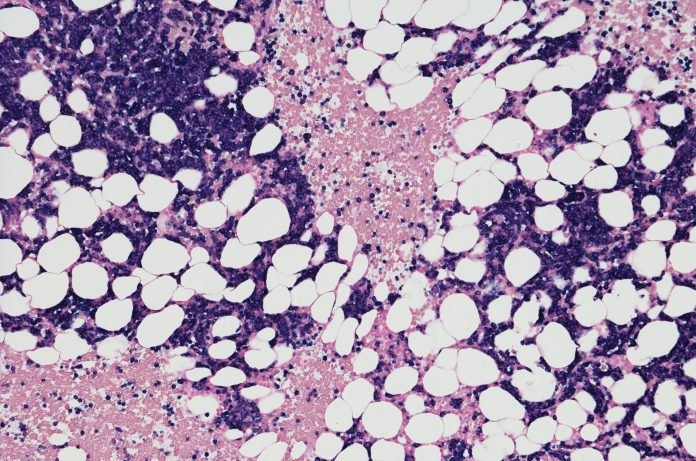
Data from a clinical trial published in The New England Journal of Medicine (NEJM) from researchers at Memorial Sloan Kettering Cancer Center (MSKCC) indicates that people with recurrent multiple myeloma may benefit from receiving chimeric antigen receptor (CAR) T therapy earlier in the course of their cancer.
The Phase III trial studied the effectiveness of the drug idecabtagene vicleucel (ide-cel) marketed under the trade name Abecma by Bristol-Myers Squibb. Abecma was first approved as treatment for multiple myeloma in March 2021 for the treatment of adults with multiple myeloma whose disease did not respond to, or recurred, after more than four lines of therapy. Idecabtagene vicleucel is the first cell-based gene therapy approved by the FDA for the treatment of multiple myeloma. It was the first CAR T therapy approved for multiple myeloma and was approved for the indication under the FDA’s orphan drug and breakthrough therapy designations.
“While there is no cure for multiple myeloma, the long-term outlook can vary based on the individual’s age and the stage of the condition at the time of diagnosis. Today’s approval provides a new treatment option for patients who have this uncommon type of cancer,” said Peter Marks, MD, PhD, director of the FDA’s Center for Biologics Evaluation and Research, at the time of its initial approval.
The new study was intended to see if there was benefit to applying the therapy earlier in the course of a patient’s treatment, according to Sergio Giralt, MD, deputy division dead in the Division of Hematologic Malignancies at MSKCC, who led the trial. The study, called KarMMa-3, looked at giving the drug sooner, after patients had failed between two and four other treatments.
“We know that the more times a patient’s cancer comes back, the harder it is to treat,” said Giralt. We were very impressed with the results. Compared with standard treatment, there was a nearly sevenfold increase in complete remission rates—meaning that no cancer could be detected in the body after the treatment.
Results from the trial showed that of the patient in the ide-cel group, 33% showed complete remission versus 5% who had complete remission in the standard therapy group. Time to recurrence of disease was also longer in the ide-cel group—13.3 months compared with 4.4 months in the standard therapy group.
While the results are very encouraging, Giralt noted that the unique study design will make it difficult to discern if ide-cel patients receiving the drug earlier exhibited increased survival.
“One difference in this trial compared with other studies is that patients in the standard treatment group were also able to receive ide-cel—after their other treatment stopped working. This was great for the trial participants, because they had the opportunity to benefit from this drug no matter to which group they were assigned,” he said. “But it also means that it will be hard for us to find out if patients on ide-cel survive longer than with standard treatment alone, because almost everyone eventually got the ide-cel.”
The MSKCC team hopes their findings can lead to changes in how ide-cel is used in the treatment of multiple myeloma. The team also continues to research the drug in other treatment settings including giving it to patients before autologous stem cell or bone marrow transplants (BMTs) to help make these transplants more effective and longer lasting.













